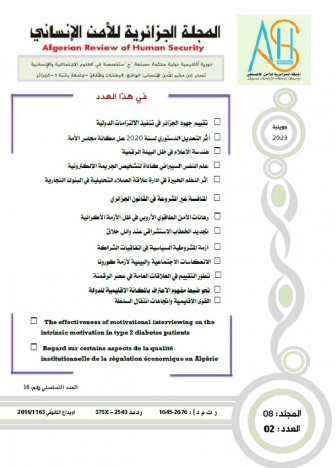Crisis of political conditionality in the association agreements between the European Union and countries - Algeria, a case study
DOI:
https://doi.org/10.59791/arhs.v8i2.1989Keywords:
Political conditionality, Association agreements, European Union, AlgeriaAbstract
In its partnership with countries, the European Union has always focused on the political dimensions, clearly linking politics and the economy. Beginning in 1991, it decided to make its aid to African countries, for example, coupled with political conditionality, namely respect for human rights, progress on the democratic path, and good governance. Thus, the issue of conditionality was one of the contentious issues in the relationship between many countries whose political systems are underdeveloped. Political conditionality as a subjugation mechanism represented an essential feature of proceeding with the agreement in order to ensure the acquiescence of the weak states, and although conditionality were always necessary issues, the developments that occurred during recent decades, especially the rise of China and the strong competition of the economies of many emerging countries, made the issue of Conditionality is one of the most controversial issues in the debate about the primacy of economics over politics for many European countries. Algeria was not an exception in the cooperation and partnership agreements, as it was pressured to accept some political conditions, maneuvered in some of them and rejected many of them, as it remains its right not to bow to political conditions, especially in domestic issues. Keywords: Political conditionality, Association agreements, European Union, Algeria.




